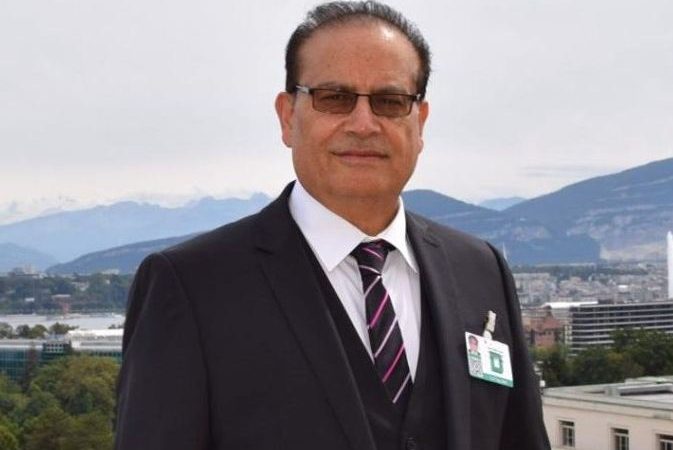Pahalgam: Indians Stand Against Modi’s Hatred

Qamar Bashir
The recent Pahalgam terrorist attack was a moment of immense sorrow. Yet, what followed revealed something even more profound: a sharp disconnect between the Indian government’s rhetoric of blame and revenge and the people’s call for sanity, justice, and unity. Across religions—Hindus, Muslims, and Sikhs alike—ordinary citizens rejected the narrative of war and communal hatred. They demanded that the tragedy be addressed within its own local dynamics, not be weaponized into a new wave of regional or religious conflict.
While politicians rushed to escalate tensions, threatening military action, suspending diplomatic ties, and even proposing to abrogate the Indus Waters Treaty, a different voice rose from the streets and social media: the voice of the people. Ordinary Indians and Kashmiris expressed fatigue with political exploitation of tragedies. They insisted that the attack be treated strictly as a criminal act, calling for justice through proper investigation and prosecution, rather than communal or geopolitical confrontation.
This episode exposed the widening gulf between the Indian government’s escalationist approach and the people’s yearning for peace. While Modi and his allies chose the path of military threats, diplomatic brinkmanship, and communal rhetoric, ordinary citizens across India—Hindus, Muslims, Sikhs—embraced a vision of unity, compassion, and moral clarity.
Despite the horror of the attack, it was the ordinary citizens — not the government — who showed true patriotism. Across Kashmir and the rest of India, Hindus, Muslims, Sikhs, and Christians came together in solidarity, rejecting the poisonous narrative of communal hatred.
In Kashmir, locals risked their lives to save stranded tourists, carried the wounded on horseback, and offered shelter without asking about religion. Indian Muslims nationwide condemned the attack unequivocally, delivering anti-terror sermons from over 550,000 mosques and praying for the victims. Candlelight marches, shutdowns in mourning, and spontaneous calls for peace reflected the real spirit of India.
Many Indians, including prominent journalists, analysts, and activists, pointed out the bitter irony that by promoting hatred and aggressive retaliation, the Modi government was advancing the very agenda terrorists intended. Social media erupted with criticism, observing that the terrorists had aimed to ignite Hindu-Muslim violence—and official rhetoric was playing directly into that plan.
While Modi’s hollow threats were taken seriously by the Pakistani government, which retaliated with “equal and proportionate” counteractions, the people of Pakistan brushed aside all threats. Contrary to being terrified by Indian war cries and threats to strangulate their population by cutting off water, Pakistanis felt jubilant and galvanized, seeing echoes of India’s humiliation during the failed 2019 surgical strikes. Instead of cowering, the Pakistani population displayed resilience and confidence, refusing to be bullied.
Internationally too, while governments condemned the Pahalgam incident, they notably refrained from blaming Pakistan directly. Thus, Modi’s orchestrated attempt to weaponize the tragedy — to whip up nationalist frenzy at home and intimidate Pakistan abroad — fell flat, achieving none of its objectives and leaving him isolated on the global stage.
Citizens questioned how, despite the presence of nearly 900,000 Indian troops stationed across Kashmir, a heavily patrolled tourist area could have been attacked. Many Hindus, Muslims, and Sikhs emphasized that the tragedy demanded honest answers and better protection for civilians, not external blame or religious polarization.
Testimonies from the ground painted a strikingly different picture than the government’s war narrative. Hindu survivors recounted how Muslim villagers in Kashmir rescued and sheltered them, hid them from the attackers, fed them, and ensured their safe passage to airports. One Hindu tourist from Maharashtra said, “We were trapped, terrified. Muslim families opened their homes to us, fed us, and gave us courage. Without them, we would not be alive today.”
Another Sikh tourist from Punjab shared, “Our Muslim brothers risked their lives to shield us. One of them even got injured while trying to get us to safety. We owe them everything.” A local Kashmiri Muslim explained, “We saw them as guests, not Hindus or Sikhs. Terrorists wanted bloodshed between communities. We wanted to protect peace.” These powerful stories spread across social media but were largely ignored by major news outlets, which continued to amplify calls for retaliation.
A particularly moving testimony came from a young Hindu boy, whose interview with major channels and social media went viral. In a voice trembling with emotion, he pointed out the glaring security failure, stating that although the Indian army maintained a base near the tourist spot, not even a police constable or military guard was present when the attack happened. The terrorists, he noted, came freely, carried out their heinous act, and fled without facing any resistance. His words resonated with millions, exposing the urgent need for accountability rather than externalized blame.
One activist summed it up: “When Muslims were lynched, there were no diplomatic crises. Now, when Hindus are attacked, it becomes a matter of national honor? Justice must be the same for all, or it is not justice.” The hypocrisy was not lost on the public. Many saw the selective outrage as proof that communal divisions were politically convenient rather than morally grounded.
Perhaps most strikingly, this tragedy revealed a new assertiveness among Kashmiris. They rejected any collective blame and firmly asserted their Indian identity. A Kashmiri youth leader stated, “We are Indians. We have nothing to do with Pakistan. This attack is a crime against our people too. Don’t treat us as suspects. Treat us as victims demanding justice.” Kashmiris held rallies condemning the attack, organized interfaith prayers, and assisted stranded tourists without discrimination. Their message was clear: they were citizens of India, demanding equal protection and dignity.
The aftermath of the Pahalgam attack could have been a descent into greater darkness. But thanks to the wisdom of the common people—Hindus, Muslims, and Sikhs—there is still hope. They have demonstrated that terrorism can be defeated not only by military means but by unity, humanity, and a refusal to surrender to hatred. If political leaders fail to learn from this, they will find themselves increasingly out of touch with the true spirit of the nation. The people have spoken clearly: they will not be pawns in a game of hate. They will stand together.
Qamar Bashir
Press Secretary to the President (Rtd)
Former Press Minister at Embassy of Pakistan to France
Former MD, SRBC
Macomb, Detroit,
Related News

Bombing on Bowed Bodies: An intelligence failure?
By Prof. Dr. Arshad Munir Those who prostrated before God are dear to God. TheyRead More

Kites of Hope Amid Shadows of Sorrow
By Muhammad Mohsin Iqbal After nearly a quarter of a century, Basant has returned toRead More


Comments are Closed